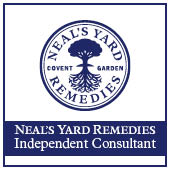Sleeptember - Why Sleep Matters & How to Improve Yours.
- Alison Iles

- Sep 9, 2025
- 4 min read

As September begins, many of us find ourselves slipping back into routine after the summer holidays. With schools restarting and work life settling down again, this month — often called Sleeptember — is the perfect opportunity to pause and reflect on one of the most important (and often overlooked) parts of our health: Sleep.
In today’s busy world, it’s all too easy to push rest to the bottom of the priority list.
Yet, good quality sleep is not a luxury — it’s a 'non-negotiable' - an essential for both our physical and mental well-being.
What Is Sleep and Why Do We Need It?
Sleep is far more than just “switching off.”
While we rest, our bodies are hard at work repairing muscles, balancing hormones, supporting our immune system, and consolidating memories.
We move through different stages of sleep — light, deep, and REM (dream sleep), each playing a vital role in helping us to wake feeling refreshed.
Without enough restorative sleep, we may find ourselves more irritable, forgetful, and prone to stress.
Longer-term, poor sleep is linked to health problems such as increased risk of anxiety & depression, heart disease, diabetes, and lowered immunity to name a few.
(Sleep Matters:The Impact of sleep on health and wellbeing)
What Do We Mean by Good Quality Sleep?
It isn’t just about clocking up the hours. Quality sleep includes:
Duration – most adults need 7–9 hours each night.
Continuity – fewer interruptions mean your body can move through complete sleep cycles.
Depth – deep sleep is especially restorative for both mind and body.
Consistency – going to bed and waking up at similar times each day supports your natural body clock.
Environment – a quiet, dark, and comfortably cool bedroom can make all the difference.
Why Do Some People Struggle With Sleep?

There are many reasons why falling or staying asleep can be difficult.
Stress, busy lifestyles, busy minds, screen time, hormonal changes, health conditions, and even our sleeping environment all play a part.
It’s no surprise that so many of us experience poor sleep at some point in our lives.
Therapies That May Help

Reflexology and Massage can both play a supportive role in improving sleep.
By calming the nervous system, reducing muscle tension, and easing stress, these therapies encourage the body into a state of relaxation — the ideal foundation for better rest.
Many of my clients report sleeping more deeply after treatments.
Tips for a Better Night’s Sleep
Here are some simple, practical ways to encourage more restful nights:
Stick to a routine – try to go to bed and wake up at the same time every day (even on weekends!). Try and aim for 7-9 hours of sleep.
Wind down gently – Pick a relaxing, calming activity that YOU enjoy – it shouldn’t
feel like a chore! A warm bath, reading or journalling, gentle stretching or a calming breathwork exercise can help signal to your body it’s time to rest.
Keep your bedroom sleep-friendly – dark, cool (16-18 C) , and quiet works best.
If you're a light sleeper use blackout curtains, an eye mask and ear plugs or white noise to block out external light and noise.
Make your bed comfortable - Check your mattress, pillows and bedding - are they comfortable or do they need replacing?
Switch off screens – avoid phones, TVs, and laptops for at least an hour before bed, as blue light delays melatonin production and can disrupt sleep - if you find that time escapes you why not set an alarm to remind you that it's now 'switch off' time.
Watch food and drink – avoid caffeine, alcohol, and heavy or spicy meals too close to bedtime. If you like a warm drink in the evening you could maybe try herbal tea?
Stay active in the day – regular movement supports better sleep, but avoid vigorous exercise too late in the evening. If you have a desk job, try to get up and move around regularly throughout your day, or get outside for a walk during breaks.
Manage stress – relaxation techniques, mindfulness, or therapies such as massage and reflexology can help ease a racing mind - even a simple walk outdoors can help.
Seek support if needed – if sleep issues persist, it’s worth speaking to your GP or health professional for advice.
Neals Yard Remedies (NYROrganics) products - 'Pillow Mist' & 'Night Time Remedies to Roll'.
Making Sleep a Priority

This Sleeptember, why not take a closer look at your own sleep habits?
Are you giving your body the rest it deserves?
By making small changes to your evening routine — and considering supportive therapies like reflexology or massage — you can improve not just your sleep, but your overall well-being.
Don’t forget better sleep can start with all kinds of other changes too - from nutrition and exercise to a digital detox and regular routines.
After all, sleep isn’t just about feeling rested. It’s about giving yourself the best chance to feel well, balanced, and ready for the day ahead.
Recent Studies -
Further Sleep Resources (for adults & children) -
About Ali
Ali Iles is a Reflexology & Massage Therapist based in Downend, Bristol, UK.
Providing you with time for relaxation - relieving tension and helping to improve your sense of well-being and health.
Ali has also completed a range of courses provided by The Sleep Charity in 'Understanding Adult Sleep'.















Comments